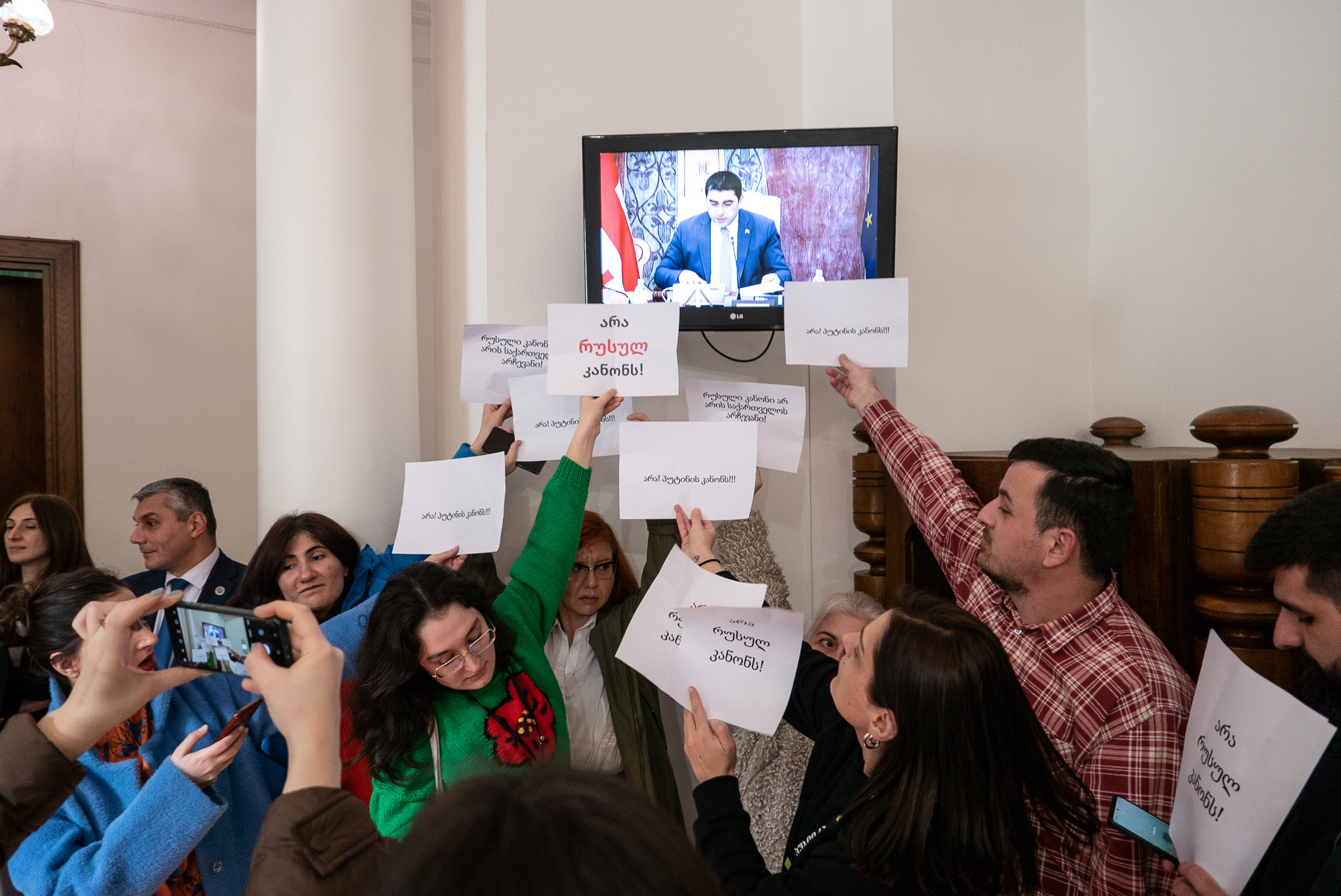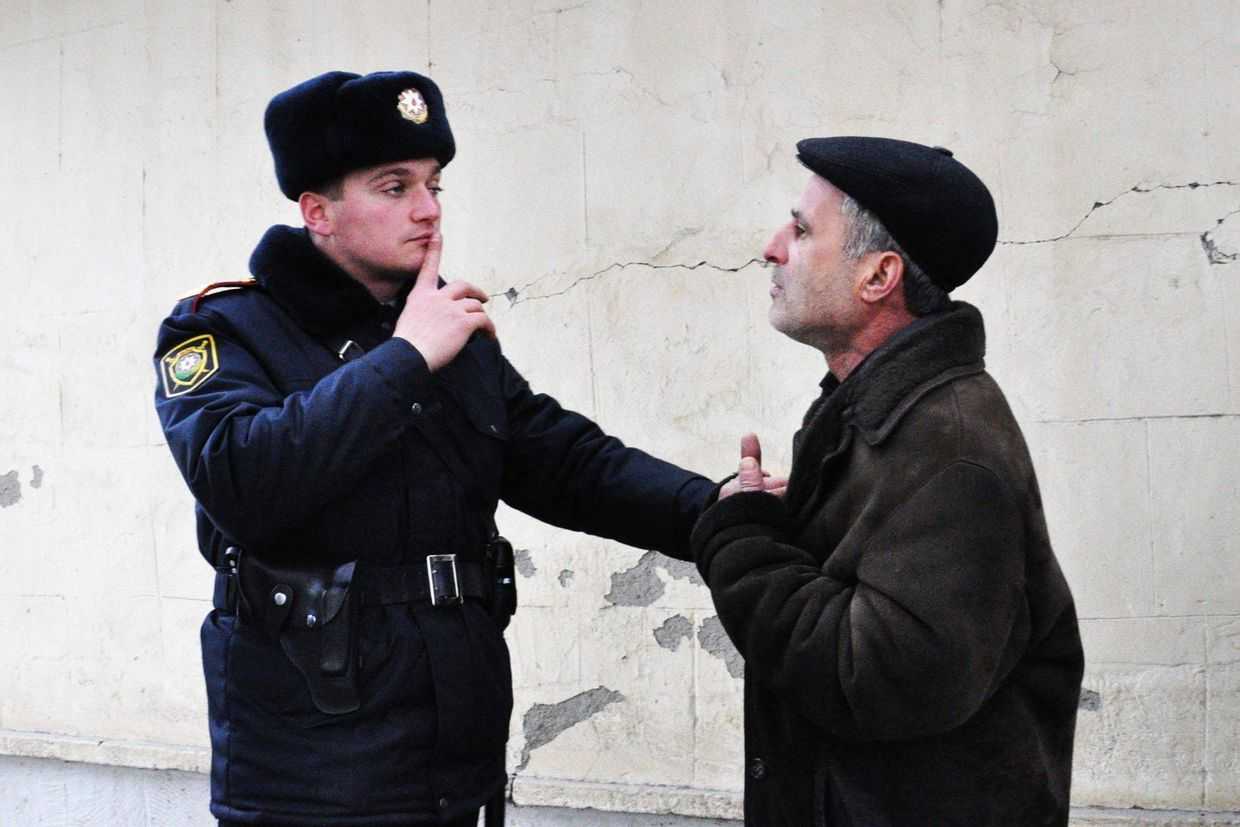
The Georgian Parliament has issued new regulations that would prohibit protesting inside parliament, regulate visits made by members of the public, and implement a vague dress code policy.
As of 18 September, and unless permitted by the parliament’s administration, all visitors will be prohibited from bringing in speakers, megaphones, microphones, posters, placards, banners, or any ‘objects that can be used for demonstration’.
The new regulations would also require visitors to inform parliament of the purpose of their visit and would ban them from speaking to the media in the press briefing area without the parliamentary press service’s permission.
The new rules would also require visitors to dress ‘appropriately’ as well as prohibit ‘any activities that would impede the work and events in parliament’.
Visitors found in violation of the new regulations would be banned from entering parliament for up to a year.
In recent years, Parliamentary Speaker Shalva Papuashvili has repeatedly limited access to parliament, citing ‘enhanced security measures’. During his tenure, access to parliament was limited during major events, such as speeches given by Prime Minister Irakli Gharibashvili or parliamentary hearings on controversial bills and issues.
His restrictions have effectively prevented opposition lawmakers from issuing passes to supporters or activists and often barred media workers from covering sessions.
Papuashvili announced the new regulations in a Monday Parliament Bureau session, where he explained that the new system would introduce colour-coded threat levels.
‘For more clarity, precise definitions of security levels are being introduced: red, yellow, and green levels’, said Papuashvili, who claimed the new regulations were in line with the ‘best European practices’.
Papuashvili explained that a red threat level would require the evacuation of all those present in parliament ‘in case of force majeure events’, while yellow would ‘introduce various limitations for visitors’.
Documents published by parliament on Monday revealed that a ‘yellow security level’ would be announced in the event of a ‘risk of violation of working environments and/or security’ in parliament. A yellow threat level would allow security personnel to prevent all visitors, including journalists, from entering parliament.
‘This [yellow threat level] should actually be called “stay away from citizens as far as possible, because we’re afraid of them” ’, said Ana Natsvlishvili, an opposition MP from Lelo, on Tuesday.
‘You are this afraid to hear the voice of Georgian citizens. This is just embarassing’, she added.
A continuation of Papuashvili’s ‘code of conduct’
The new regulations will go into effect shortly after Parliament convenes for its autumn session, which kicked off on Tuesday. The parliament’s agenda will be dominated by the ruling party’s contentious intention to initiate impeachment proceedings against its former ally, President Salome Zurabishvili.
[Read more on OC Media: Georgian Dream to begin impeachment proceedings against president]
Papuashvili doubled down on restrictions in parliament in early February, two weeks before the ruling Georgian Dream party announced their decision to endorse the controversial foreign agent law.
The bill would have targetted civil society groups and independent media who received more than 20% of their funding from abroad as ‘agents of foreign influence’. The ruling party dropped the bill after two nights of intense street protests against the law in Tbilisi.
At the time, Papuashvili criticised opposition MPs for issuing parliament access passes to activists and journalists who were protesting the law.

On 27 February, activists protesting the draft law were barred from entering parliament despite being granted passes by opposition MP Aleko Elisashvili. At the time, security personnel barred some journalists from entering the building and confiscated banners from visitors.
In early March, as protests erupted inside and outside the parliament, the speaker quickly used these rules to ban reporters from entering parliament.
[Read more on OC Media: New accreditation rules threaten to ban media outlets from parliament]
Additionally, on 2 March, security services at the parliament escorted two journalists out of the premises.
Those earlier rules that came in February have been criticised by the Georgian Public Defender, while several suspensions are currently being challenged in court.









